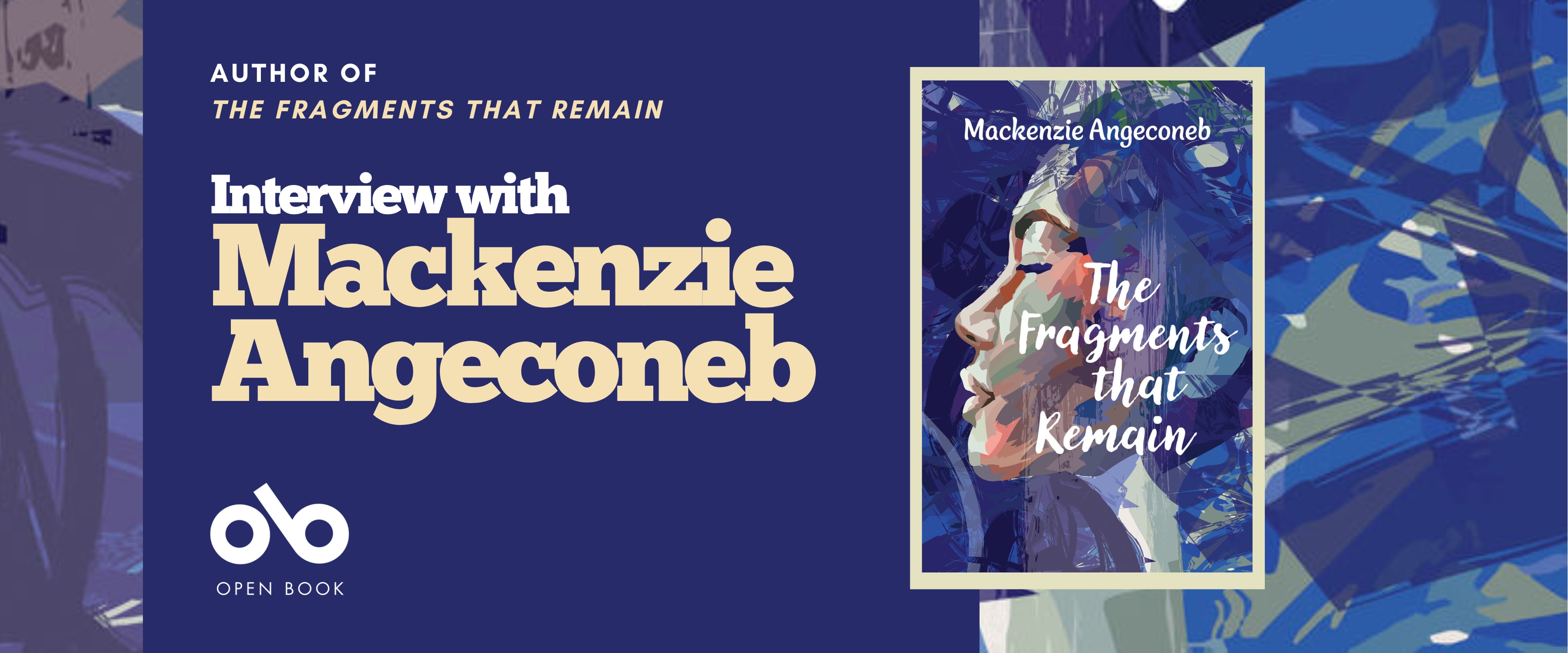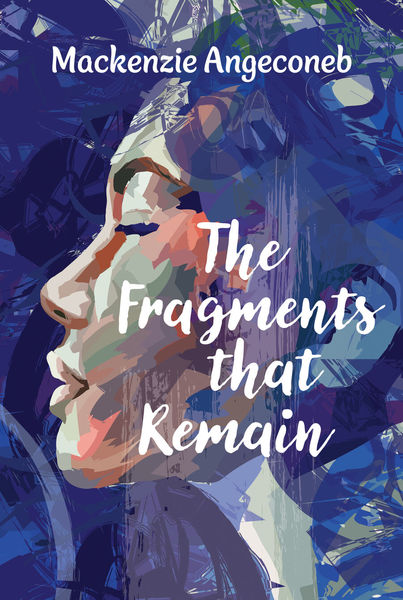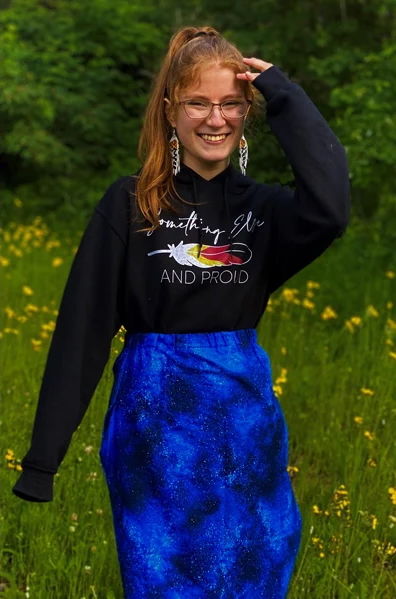The Fragments that Remain Tells a Story of Love, Grief, and Hope Through One Young Person's Letters to a Lost Sibling
Uniquely told through letters and poems, our featured title today is a captivating YA story full of hope and heart. It is the debut novel from author and educator Mackenzie Angeconeb, balancing grief and loss with all of the nuance and beauty that comes with authentic characters growing up and truly understanding their identities and histories.
In The Fragments that Remain (Cormorant Books), we meet honorary twins Ally and Andy, who share everything in their young lives until Ally tragically dies from an overdose. A year passes before Andy starts her first year at college without her closest friend and brother. In an attempt to get through all of the ups and downs of this new experience, Andy writes letters to Ally as she makes new friends, falls in love, and embraces her sexuality and Indigenous identity. In the midst of this, Andy discovers poems that Ally had hidden away in their room, and uses these profound pieces of her lost kin to truly understand who he was, and make sense of his life and death.
Find out more about this heartfelt and powerful debut novel right here, in this Bright Young Things YA interview with the author!
Open Book:
What, in your opinion, is unique about writing for young adults? What are some of the pleasures and challenges?
Mackenzie Angeconeb:
Writing for young adults is so unique because it covers so much. You could write a dystopian young adult, a fantasy, a thriller, a horror. To me, young adult just means the age of your characters. The biggest pleasure I found of writing in this genre is knowing that this is the type of book I would have loved when I was a teenager, that this is the type of book I needed at that time. The biggest challenge I find is trying to keep the book from seeming too mainstream and full of tropes. Finding a way to make your idea stand out so it is never met with a “Oh so it’s like ____?” when explaining the book summary.
OB:
Did your book turn out similar to how you original expected it to, or did it change through the writing process?
MA:
My very first idea for this book that reignited my passion for writing was worlds different from what the end product was. This was because I didn’t plot out, I just started writing. I had an idea and went running with it. In a way, my first draft was my rough plotting plan. With each draft, my book changed a little bit until it became what it is now and I couldn’t be happier with it.
OB:
What was the strangest or most memorable moment or experience during the writing process for you?
MA:
The most memorable moment in the writing process for me was doing a final read over of the adjustments suggested by my editor and realizing: howah I actually wrote a book and it’s not just a book on the a writing website like when I was a young teenager, it’s a book that will be sold in stores! It was mind blowing to think I had achieved my dream.
Your CanLit News
Subscribe to Open Book’s newsletter to get local book events, literary content, writing tips, and more in your inbox
OB:
YA features some strong genre themes and tropes (e.g. the chosen one, the outsider protagonist, missing or dead parents). How do you feel about those elements of the genre?
MA:
The YA books that I had read always seemed to center around romance. It was the driving force for the main character in their story. Although it felt normal for a YA character to be completely infatuated, I didn’t want my books to be like that. There’s more to life than finding love and that is why my writing centers around finding yourself.
OB:
What do you need in order to write – in terms of space, food, rituals, writing instruments?
MA:
I began writing my book while attending a year at university and finished it two months before I completed college. This meant lots of my writing time was spent sitting on a couch with the television playing or early in the morning before classes. Now, I can’t write in the evenings and I can’t write while listening to music. I prefer using Google Docs to write so that I don’t have the excuse of not having my laptop available to write, I can do it on my phone whenever the mood strikes.
OB:
Do you feel like there are any misconceptions about writing for teens and young adults? What do you wish people knew about what you do?
MA:
When I tell people that I have a book published, the first question they ask is the genre. The second question they ask is if it’s a fantasy or romance. A misconception I have encountered is that many people do not see writing for teens and young adults as a genre that can include real world situations. It always seems to be expected for the story to be set into another world with a heavy element of romance for the main character. I wish people knew that I choose to write for teens and young adults because I would have loved for a realistic story that feels like it could be anyone’s story in this genre when I was younger.
OB:
What's your favourite part of the life cycle of a book? The inspiration, writing the first draft, revision, the editorial relationship, promotion and discussing the book, or something else altogether? What's the toughest part?
MA:
Holding the finished book while remembering the journey of writing it is my favourite part. Having the end product in my hands and being able to recall everything that went into it and how I grew with my book as it developed is an amazing feeling. The toughest part for me is writing the first draft. I always undervalue my own writing skills and second guess on whether I am doing a good enough job on my story. It’s a time of constant self doubt for me.
OB:
What are you working on now?
MA:
The last book I just finished writing is currently in the beta reading stage. In the meantime, while I wait until I can do my final polish, I am plotting out a new book that I’ve had bouncing around in my head for a while. It will feature a young teenager entering the party scene as a way to make new friends when all of hers seem to fall away the summer before high school while she grapples with the inner turmoil of her mother choosing the party life over being in her daughter’s life.
________________________________
Mackenzie Angeconeb (Aan-ji-qui-ni-ai’ib) (she/they) is an Anishinaabekwe author and educator from Lac Seul First Nation. She began writing while attending university, incorporating themes from the common pains of Indigenous youths and families, as well as her own coming-of-age. In their spare time, they like to paint with watercolours and acrylics, bead earrings, read second-hand books, or learn Anishinaabemowin when their schedule permits. The Fragments that Remain is her debut novel. Angeconeb lives in Sioux Lookout, ON.







